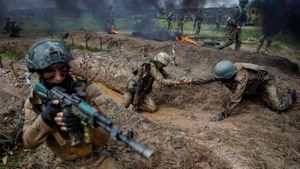The International Cricket Council (ICC) Champions Trophy 2025, which is set to be hosted by Pakistan, is embroiled in scheduling delays due to unresolved disputes among cricket’s governing bodies. According to various reports, including information from ARY News and Daily Jang, the Pakistan Cricket Board (PCB) stands firm against the proposed hybrid model, which India’s Board of Control for Cricket in India (BCCI) has been advocating. This model suggests hosting some matches outside of Pakistan, which has been met with strong opposition from the PCB.
PCB’s insistence on holding the entire tournament on home ground has led to prolonged uncertainty surrounding this major cricketing event. The upcoming ICC event, originally planned for February-March 2025, has seen multiple delays, primarily fueled by the strain between India and Pakistan, two teams with deep-seated historical rivalries on the cricket field.
Currently, BCCI Secretary Jay Shah is reportedly traveling to Dubai to meet with ICC officials to discuss the situation. This meeting is expected to address what sources have termed as the ‘deadlock’ over the tournament's location and format. It remains to be seen if this dialogue will yield any positive outcomes or if the discord will continue to disrupt the schedule announcement.
Adding to the complexity of this situation is the growing pressure from broadcasters who are anticipating blockbuster matches, particularly the highly-anticipated Pakistan-India showdown. This rivalry consistently generates enormous viewership, as evidenced by the staggering 173 million television viewers and 225 million digital viewers who tuned in for their recent World Cup match. Such numbers translate to significant revenue opportunities for both the ICC and its broadcasting partners.
Reports indicate broadcaster threats of legal action if the ICC fails to include the Pakistan-India match within the tournament. They have emphasized the financial ramifications of omitting this clash from the schedule, urging the ICC to maintain the traditional format which features these two arch-rivals. This sentiment was echoed during discussions as stakeholders considered possible alternatives to break the stalemate.
While PCB has made it clear they will not accept the hybrid model, the ICC is under pressure to mediate between the conflicting parties and reach a resolution. The PCB's firm stance aligns with the country’s broader sports policies, which have witnessed India withdraw from several sporting events held on Pakistani soil since 2008, leading to heightened concerns about bilateral sports relations.
The situation took another turn when PCB formally reached out to ICC to demand clarification from BCCI about its refusal to tour Pakistan. Earlier conversations between these bodies seemed to only trade verbal statements, which PCB deems insufficient. This only highlights the lack of transparency and communication between them.
Industry insiders suggest if all parties can demonstrate some flexibility and willingness to negotiate, the schedule may be announced sooner rather than later. Broadcaster interests, especially concerning the inclusion of marquee matches, could help ease tensions if stakeholders find common ground.
Looking back, the ICC has historically ensured both nations face off at different international events. The revenues from such matches provide significant support to the operations of the ICC, enhancing their ability to host other tournaments around the globe.
The recent deadlock has shifted the focus to the impending leadership changes within the ICC, with Jay Shah set to take on the role of ICC Chairman starting December 1. His leadership will be pivotal as the board navigates this challenging situation and strives to keep the upcoming Champions Trophy relevant and financially viable.
Further complicate this scenario, broadcasters have articulated their concerns explicitly. They want guarantees of matches featuring India, which traditionally refresh the spectatorship and elevates tournament viewership metrics. With contracts worth billions snugly hinging on these matches, the economic stakes made negotiating these differences all the more pressing.
The ICC’s efforts to resolve these differences come at what seems like the 11th hour, with tournament preparations initially laid out months ago now hanging by threads. The importance of India-Pakistan matches transcends national pride, becoming instead about substantial economic impacts, advertising revenues, and mutual visibility on world platforms.
Fans globally are eagerly awaiting confirmation of the detailed match schedules, with the expectation not just for exciting encounters but for what the event’s success will mean for cricket as the sport continues to recover from the pandemic-induced disruptions. Whether these forthcoming decisions will fulfill expectations and bring fans phenomena, such as thrilling matches between arch-rivals, hinges on the negotiations currently underway.
Both the cricketing bodies and the ICC are expected to work tirelessly over the coming days, aiming not only to release the tournament schedule but to strengthen cricketing relations across the board; this, they hope, will pave the way for future events, including potentially staged matches at home and abroad with both teams performing. The world of cricket will be watching closely, not just for the outcome of this meeting but for the signals it sends about the future of cricketing love between nations at odds.



